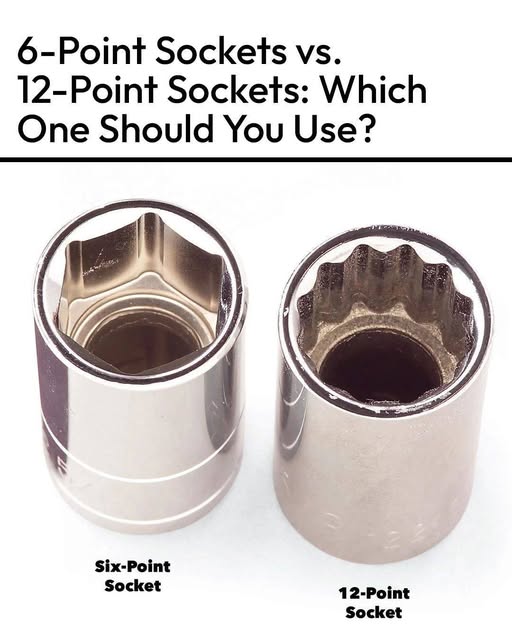🔑 What Is a 12-Point Socket?
As the name suggests, a 12-point socket features 12 points arranged in a double hexagonal pattern, with 30-degree spacing between them. ✳️
✅ Advantages of 12-Point Sockets:
-
Easier Alignment: The double hex design allows for quicker engagement with fasteners, making it useful in tight spaces or when visibility is limited.
-
Versatility: These sockets can work on both six-point and 12-point fasteners, although they offer less torque than their six-point counterparts.
-
Ideal for Light-Duty Repairs: Suitable for hard-to-reach bolts and lighter clamp loads.
🛠️ Which Socket Should You Use?
For most DIY and automotive applications, stick with the six-point socket due to its better grip and higher torque capacity. However, if you’re working with specialty fasteners or need to maneuver in tight spots, the 12-point socket can be a valuable addition to your toolkit.
⚠️ Pro Tip:
If you’re dealing with stubborn or rusty bolts, always choose the six-point socket to minimize slippage and rounding. The 12-point socket is better suited for low-torque applications or situations where precision alignment is crucial.
✨ Chrome-Plated Sockets: A Final Note
High-quality sockets are often chrome-plated to prevent rusting and facilitate easy cleaning. 🪞 However, over time, the chrome finish can flake off, leaving sharp edges that can cause injuries.
🚨 Safety Tip:
Avoid using damaged chrome sockets to prevent injury. Discard any socket with peeling chrome to keep your workspace safe.
💡 The Verdict:
When it comes to 6-point vs. 12-point sockets, it ultimately boils down to application and torque requirements. Use the 6-point socket for heavy-duty tasks and stubborn fasteners, while the 12-point socket is best for light-duty work and tricky angles.
By understanding the strengths and limitations of each type, you can make an informed decision and ensure your projects go smoothly without unnecessary hassle. 🧰✨

